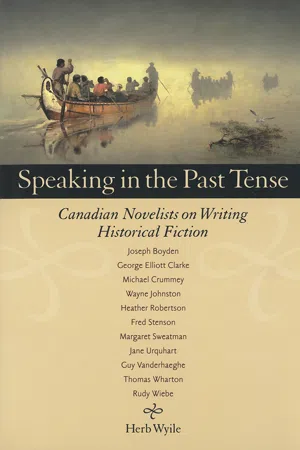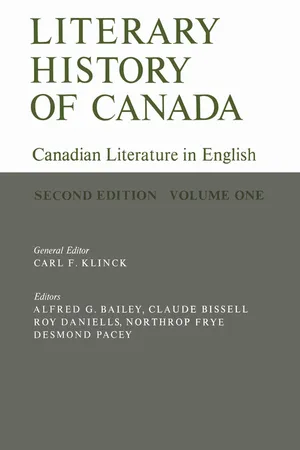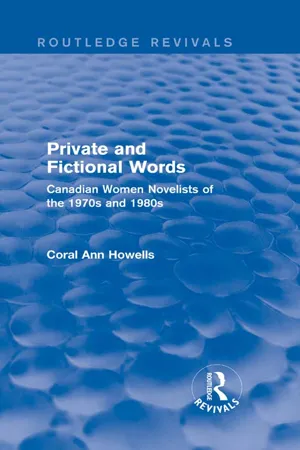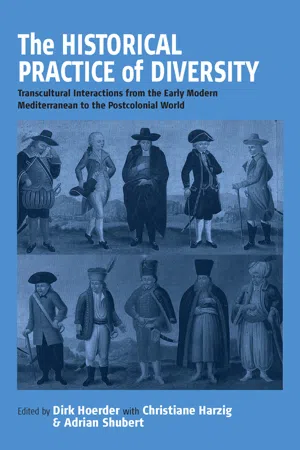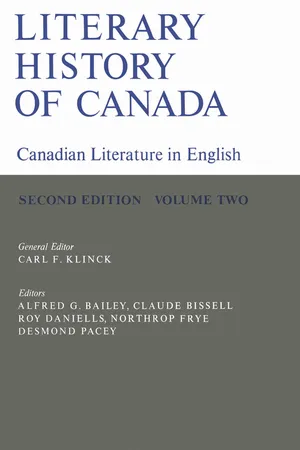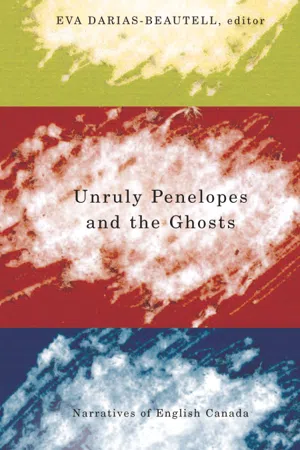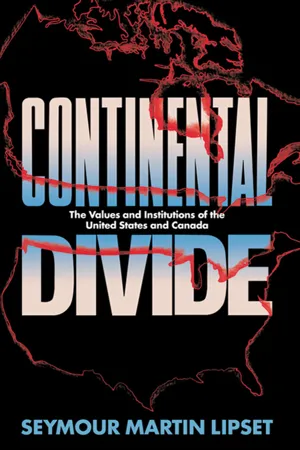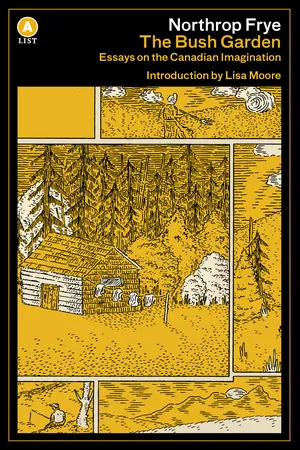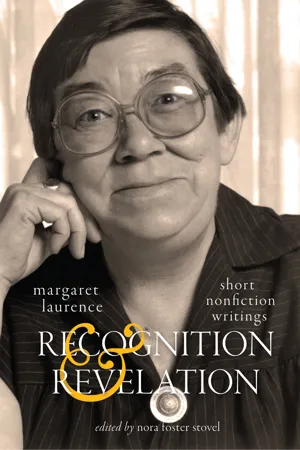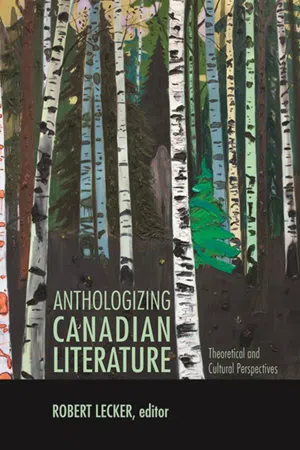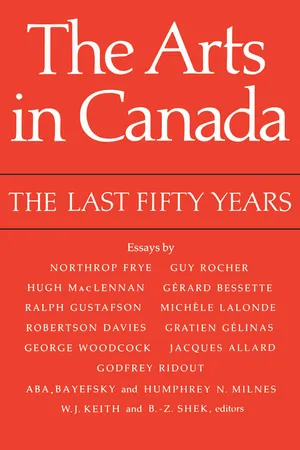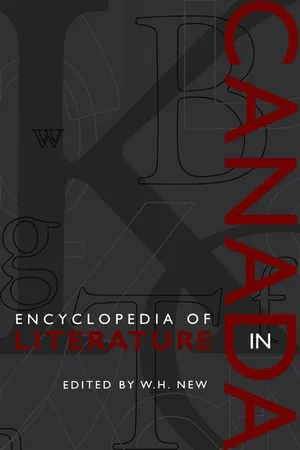Literature
Canadian Fiction
Canadian fiction refers to literary works, including novels, short stories, and poetry, that are written by Canadian authors or set in Canada. It often explores themes related to Canadian identity, culture, and landscape. Canadian fiction has contributed significantly to the country's literary heritage and has produced many acclaimed authors, such as Margaret Atwood, Alice Munro, and Michael Ondaatje.
Written by Perlego with AI-assistance
Related key terms
1 of 5
12 Key excerpts on "Canadian Fiction"
- eBook - PDF
Speaking in the Past Tense
Canadian Novelists on Writing Historical Fiction
- Herb Wyile(Author)
- 2009(Publication Date)
- Wilfrid Laurier University Press(Publisher)
Certainly, one can say that much, if not most, Canadian Fiction is historical, but there are different degrees and different kinds of history. The traditional historical novel usually revolves around some pivotal historical incident, or era, or figure, and my principal concern here, as in Speculative Fictions , is with contemporary writers whose work in some ways engages in a dialogue with the public historical record and identifiable historical figures but has also started to push the boundaries of that definition and of the def-inition of history. This dialogue is particularly important in the case of those whom the his-torical record has tended to exclude—women, the working class, and racial(ized) minorities—and one obvious fact about this collection is that the latter seem underrepresented. At the same time, however, the resulting predom-inance here of writers of European heritage is arguably an accurate reflection of the state of Canadian historical fiction. Historical novels by Native Cana-dian writers or by Canadian writers of Asian, South Asian, Middle Eastern, or African heritage are relatively scarce, something which may have to do with their historical exclusion from (albeit recent embrace by) the Canadian liter-ary scene and with their exclusion from dominant narratives about Canada’s past. In the interview included in this collection, George Elliott Clarke makes the compelling argument that the current generation of writers from minor-ity groups may be the first to feel secure enough about their place in Canadian society to write about their histories, and Joseph Boyden suggests that the rel-ative absence of such novels by Aboriginal writers may largely be attributed to the cataclysmic break with the past effected by the residential school sys-4 Introduction tem. These groups of writers, furthermore, have arguably had different prior-ities than addressing in fiction public figures and episodes from Canada’s past. - eBook - PDF
Literary History of Canada
Canadian Literature in English (Second Edition) Volume I
- Carl Klinck, Alfred Bailey, Claude Bissell, Roy Daniells, Northrop Frye, Desmond Pacey(Authors)
- 2019(Publication Date)
- University of Toronto Press(Publisher)
Or they argued that since it was mere entertainment, public money should not be squandered on providing it free for library readers. From the fervent evangelical, the idealistic, or the intellectual view, there was cause for concern; for fiction had become endemic in the English-reading world. Some of it did express new and disturbing ideas. Some of it was cheap and nasty. But the soaring production and sale of fiction in North America and in Great Britain make it clear that those who feared fiction were not the majority of the reading public, not even in what H. L. Mencken later called the North American Bible Belt. The audience for fiction in Canada had been expanding in the years before 1900, and with the influx of some three million immigrants into the country around the turn of the century, with a wave of prosperity and expansion, with the growth of cities, with the greatly increased numbers of Canadians writing about the Canadian scene, the market for fiction in Canada grew rapidly. Fiction was placed on the shelves of the Toronto Public Library, and on the shelves of Canadian town libraries as they opened under the Carnegie sun. Fiction-printing news-papers and magazines increased in numbers and circulation, and the publica-tion of fiction in book form, inside Canada and outside, rose markedly. The nationalistic mood which led Prime Minister Sir Wilfrid Laurier to predict that the twentieth century would belong to Canada led a number of Canadians to make special demands on Canadian Fiction writers. In Canadian periodicals and in public speeches they called for the creation of a unique Canadian literature which would promote a national consciousness. NEW FORCES: NEW FICTION 287 A few Canadian Fiction writers attempted to respond to this patriotic call. But it is one thing to call for the writing of the Great Canadian Novel, and another thing to write it. - eBook - ePub
Private and Fictional Words (Routledge Revivals)
Canadian Women Novelists of the 1970s and 1980s
- Coral Ann Howells(Author)
- 2014(Publication Date)
- Routledge(Publisher)
Tempest and another based on the legends of the prairie Métis. Canada’s multicultural inheritance is written into many of these fictions with their mixture of genres as well – female gothic, sentimental romance, spy stories, animal stories, pastorals, science fiction – in the recognition that literary traditions have to be transformed in a process of perpetual revision. Only through story-telling can connections with the past be realized, for inheritance comes to possess reality only when it is re-imagined and when history and legend are so closely interwoven that no objective truth is possible.The problems faced by Canadians are similar to those faced by any colonial culture like Australia or New Zealand or, earlier, the United States which has been up against the difficulty of inheriting a mother tongue together with its traditions and without a powerful infusion of indigenous culture as in Africa, India or the Caribbean – except that for Canadians the problems are further complicated by having two mother cultures and two national languages, English and French. How to find a distinctive voice for such a mixed society or to have that voice listened to abroad has always been a crucial difficulty. With Canada it seems to be resolving itself in division, as English-Canadian Fiction becomes more widely known in the English-speaking Commonwealth and French-Canadian within the Francophone tradition. D. H. Lawrence focused the dilemma for American fiction when he wrote in 1923:It is hard to hear a new voice, as hard as it is to listen to an unknown language. We just don’t listen. There is a new voice in the old American classics. The world has declined to hear it, or has babbled about children’s stories.12Though the invisibility of American literature has now become past history, Canadian literature is currently confronting the same problems of being heard as a ‘new voice’ while maintaining its ‘difference’, with all the instability that this word implies. Robert Kroetsch quoting Lawrence in 1978 suggested that paradigms of other literatures ‘patently and blatantly’ did not enable Canadians to respond to their own literature.13 While that is true, it is also true that readers outside Canada come to its fiction with exactly those other literary paradigms in their heads. The range of intertextual references I have indicated signals the relatedness of Canadian literature to British and European traditions, which is to be expected for these are the traditions within which most Canadian writers have been educated. Canadian distinctiveness may be seen to lie in efforts towards autonomy through displacing the authority of other traditions in order to give a place to what has been traditionally regarded as marginal. As a process of decentralization it is characteristically Canadian. Such shifts of emphasis involve a good deal of ambivalence which finds its most desperate and negative expression in the work of some Québécois writers where the weight of European history is seen to lie like a dead hand on the present, dispossessing the living and draining the life out of them, as in Hébert’s vampire fable Héloïse - eBook - PDF
The Historical Practice of Diversity
Transcultural Interactions from the Early Modern Mediterranean to the Postcolonial World
- Dirk Hoerder, Christiane Harzig, Adrian Shubert(Authors)
- 2003(Publication Date)
- Berghahn Books(Publisher)
Prevailing critical assumptions about Canadian literature have also changed; for example, the once popular idea of a unified Cana-dian literature, one that expresses a clearly defined if not homogeneous national voice, is virtually dead. 2 The notion that literature might indeed express a unified national culture was widely assumed in English-speaking Canada from at least the time of Confederation to the 1970s. In fact, the his-tory of Canadian literature in English has often been constructed as the story of an evolution from a small collection of merely imitative colonial texts to (by the mid-twentieth century) an impressive collection of authen-tic “national” texts, albeit reflecting a complex relationship with region. 3 The latter were seen as products of a confident nation which, with “Hugh MacLennan’s 1941 novel, Barometer Rising , experienced a period of liberal reassessment of Canadian culture,… a period which declared Canada’s freedom from external constraints, a Canadian role in world affairs, and the viability of Canadian subjects in literature.” 4 Nourished by the Canada Council (established in 1957), Canadian lit-erature in English continued to be seen by many during the 1960s as a reflection of a unitary national culture. During this period of assertive nationalism in English-speaking Canada, literature (and literary criticism) was widely regarded as a site where the remnants of the old colonial rela-tionship with Britain, and the newer one with the United States, could be resisted, in part by pinpointing what was quintessentially Canadian. Writ-ers and critics, such as Margaret Atwood, in her novel Surfacing (1972) and more explicitly in her critical work Survival (1972), attempted to delineate 240 | Tamara Palmer Seiler - eBook - PDF
Literary History of Canada
Canadian Literature in English (Second Edition) Volume II
- Carl Klinck, Alfred Bailey, Claude Bissell, Roy Daniells, Northrop Frye, Desmond Pacey(Authors)
- 2019(Publication Date)
- University of Toronto Press(Publisher)
The centre of reality, as Northrop Frye has said, is wherever one happens to be, and its circumfer-ence is whatever one's imagination can make sense of. This is the intuition which has informed the best fiction of the recent period. Before turning to the articulate few whose imagination is thus expanding Canadian consciousness, we must notice the verbose and deciduous many whose leaves are swept together by the social and literary historian if not by the critic. First, a summary of the total production for the period. In the twenty-one years from 1940 to 1960, 350 writers produced 800 volumes of fiction and belles-lettres (not to mention an uncounted number of children's books and their authors). Of these, approximately 75 per cent were novels, 15 per cent belles-lettres (a term which in Canada refers principally to the reminiscences of journalists, clergymen, and professors) and 10 per cent short stories and humorous pieces. These figures contain no surprises. After non-fiction, which in Canada as elsewhere has now become the principal means of social documentation, the novel reigns supreme. The economics of pub-lishing and the simpler economics of the writer's bread and butter discourage essayists and short story writers alike, but the novel maintains its prestige as major work, and entices the would-be writer with extravagant dreams of fame and fortune. Moreover, the pressures of the market account in part for the dominance of stereotyped forms among the 570-odd novels published. In this group, 15 per cent were detective novels or thrillers, written to formula for a mass audience and published more often than not in the United States; 20 per cent were historical romances or frontier adventures (three-quarters of which used North American settings); and the remaining 65 per cent were contemporary narratives ranging in setting from Bombay and Accra to Mont-real and Penticton, and in manner from pseudo-Shaw through Sherwood I THE REALIZATION OF A TRADITION - eBook - PDF
Unruly Penelopes and the Ghosts
Narratives of English Canada
- Eva Darias-Beautell(Author)
- 2012(Publication Date)
- Wilfrid Laurier University Press(Publisher)
As a result, this volume offers a strangely fractured literary history that is continually obliged to rewrite its own premises relating to nation, canonicity and genre, biculturalism, mul-ticulturalism, and transculturalism. The new theoretical perspectives and the new writing thrown into relief in this final section introduce discourses that are seriously at odds with the traditional teleological model at the basis of literary histories. However, they are not integrated into a critical nar-rative that would offer a revisionary reading of the literatures of Canada. Turning to The Cambridge History of Canadian Literature , I shall write about it in the first person, acknowledging my own interest and involve-ment as its co-editor, with Professor Eva-Marie Kröller of the University of British Columbia. 11 When we were invited by Cambridge University Press to submit a proposal for their first-ever history of Canadian literature in their Cambridge Histories series, we had the real advantage that Professor Kröller had recently edited the Cambridge Companion to Canadian Litera-ture (2004), a much shorter form than a history and addressed to a differ-ent readership, and that she had grappled with the question about what kind of story to tell in the early twenty-first century about Canadian litera-ture. Yet we now had to think through different questions to do with the specific kind of cultural work that a national literary history is expected to perform, and what kind of methodology would best address the problem (to quote Godard again) of “the meaning of the ‘national’ as it operates in literary discourse” (181). - eBook - ePub
Continental Divide
The Values and Institutions of the United States and Canada
- Seymour Martin Lipset(Author)
- 2013(Publication Date)
- Routledge(Publisher)
4Literature and Myths: Canadian PerspectivesCanada, as we have seen, lacks an ideology, but it has a strong identity, one that is reflected in its increasingly important literature and other creative arts. And these have helped both to form and to reflect the national self-image. As Ronald Sutherland, a Canadian literary critic, emphasizes, "[t]he greatest writers of a nation...respond to the forces that condition a nation's philosophy of life, and they in turn condition that philosophy."1 A striking example of the way novelists reinforce national self-conceptions can be found in The Lyre of Orpheus, the most recent novel by Robertson Davies. He gives voice to Canadians' consensus that they lack a capacity for excellence and achievement, that they value mediocrity. Non-Canadian characters in the story are described as "possessed by ambition," as seeking "real adventure." But in referring to "the Canadians," he notes:[T]hey closed up at any imputation of high motives, of splendid intention, of association with what might be great, and therefore dangerous. They were not wholly of the grey majority of their people; they lived in a larger world than that, but they wore the greyness as a protective outer garment. They did not murmur the national prayer: "O God, grant me mediocrity and comfort; protect me from the radiance of Thy light." Nevertheless, they knew how difficult and disquieting too bold a spirit might be. They settled to their plates, and made small talk.2American novelists, though they rarely use Canada as a setting, have occasionally added to these stereotypes. Thus, in John living's latest book, A Prayerfor Owen Meany , his American-born protagonist, while living in Toronto, is rebuked for his outspokenness: "It's very American — to have opinions as...strong as your opinions. It's very Canadian to distrust strong opinions....Your anger — that's not very Canadian either."3 - eBook - ePub
The Bush Garden
Essays on the Canadian Imagination
- Northrop Frye(Author)
- 2017(Publication Date)
- A List(Publisher)
author who is a classic in the sense of possessing a vision greater in kind than that of his best readers (Canadians themselves might argue about one or two, but in the perspective of the world at large the statement is true). There is no Canadian writer of whom we can say what we can say of the world’s major writers, that their readers can grow up inside their work without ever being aware of a circumference. Thus the metaphor of the critic as “judge” holds better for a critic who is never dealing with the kind of writer who judges him.This fact about Canadian literature, so widely deplored by Canadians, has one advantage. It is much easier to see what literature is trying to do when we are studying a literature that has not quite done it. If no Canadian author pulls us away from the Canadian context toward the centre of literary experience itself, then at every point we remain aware of his social and historical setting. The conception of what is literary has to be greatly broadened for such a literature. The literary, in Canada, is often only an incidental quality of writings which, like those of many of the early explorers, are as innocent of literary intention as a mating loon. Even when it is literature in its orthodox genres of poetry and fiction, it is more significantly studied as a part of Canadian life than as a part of an autonomous world of literature.So far from merely admitting or conceding this, the editors have gone out of their way to emphasize it. We have asked for chapters on political, historical, religious, scholarly, philosophical, scientific, and other non-literary writing, to show how the verbal imagination operates as a ferment in all cultural life. We have included the writings of foreigners, of travellers, of immigrants, of emigrants — even of emigrants whose most articulate literary emotion was their thankfulness at getting the hell out of Canada. The reader of this book, even if he is not Canadian or much interested in Canadian literature as such, may still learn a good deal about the literary imagination as a force and function of life generally. For here another often deplored fact also becomes an advantage: that many Canadian cultural phenomena are not peculiarly Canadian at all, but are typical of their wider North American and Western contexts. - eBook - ePub
Recognition and Revelation
Short Nonfiction Writings
- Margaret Laurence, Nora Foster Stovel(Authors)
- 2020(Publication Date)
- McGill-Queen's University Press(Publisher)
In their own ways, many other Canadian novelists have come to feel that the traditional straightforward narrative is inadequate for their particular purposes and have tried to convey – with varying degrees of success – the fluctuating and ambiguous nature of reality. Sheila Watson, in The Double Hook, attempts to communicate the mystery and duplicity of human life and motivations through a poetic imagery which makes extensive use of the old Indian gods. Mordecai Richler, in The Incomparable Atuk, swings into far-out fantasy with the tale of an Eskimo sculptor who becomes so wise in the ways of the white man’s world that he keeps his entire family imprisoned in a Toronto basement, churning out quantities of extremely bad Eskimo carvings. Douglas Le Pan, in his novel The Deserter, tries to pierce through to a deeper reality in his use of intricate symbolism and inner commentary to accompany the story of a young soldier who – paradoxically – deserts after the war is over. George Bowering, a Vancouver poet whose first novel, Mirror on the Floor, was published this year, uses sharp visual images in juxtaposition with the transcription of a fictional tape recorder in what seems to me a most successful attempt to unravel the reasons behind a girl’s killing of her mother. Leonard Cohen, in his second novel, Beautiful Losers, gives a terrifying picture of an old man whose mind is on the brink of collapse, by presenting the external world only in flashes, so that the line between fantasy and so-called reality shifts and hovers in a manner which is highly effective. These are a few of the changes that have been taking place in Canadian novels. Some of our present problems of survival and growth we share with novelists writing anywhere; some of them are peculiarly our own. Our writers are still too isolated and too few. Too many novels still are written which could not conceivably be of any interest outside Canada - eBook - PDF
Anthologizing Canadian Literature
Theoretical and Cultural Perspectives
- Robert Lecker(Author)
- 2015(Publication Date)
- Wilfrid Laurier University Press(Publisher)
Disparaging the liter-ary in Canada and exploration writing in general while hinting at an aesthetic hierarchy of “literary” over “writing,” Frye’s remark also elides distinctions between writings Canadian and non-Canadian. The remark is essential given that Literary History narrates the development of English-Canadian litera-ture, which not only improves but also becomes more Canadian with time. In Frye’s words, Literary History “has its own themes of exploration, settle-ment, and development,” and “these themes relate to a social imagination that explores and settles and develops,” an imagination that “has its own rhythms of growth as well as its own modes of expression” (822). Therefore, as both the text’s final part and the happy result of the imagination’s growth and development, there is “The Realization of a Tradition”—national, Canadian. After mentioning the accidental literariness of exploration/Canadian writings, Frye shores up the developmental narrative by arguing that the inadequacies of Canadian literature arise because the Canadian sensibility has been profoundly disturbed, not so much by our famous problem of identity, important as that is, but by a series of paradoxes in what confronts that identity. It is less perplexed by the question “Who am I?” than by some such riddle as “Where is here?” (826) The much-cited, much-alluded to “‘Where is here?’” (826) is a question of convenience for which exploration writing has the answer. If Canadian litera- Excerpts of Exploration Writing 117 ture has a problem of geography, then geographic knowledge is the solution. Enter exploration writing. Exploration writing must be the nation’s earliest literature because without its observations, maps, and directions—without its arrival—Canadian literature would be lost. Thus, Frye addresses literary evaluation and national definition with a myth of origins. - eBook - PDF
The Arts in Canada
The Last Fifty Years
- William Keith, Ben-Z. Shek(Authors)
- 2019(Publication Date)
- University of Toronto Press(Publisher)
H U G H M A C L E N N A N Fiction in Canada -1930 to 1980 i I have been asked to write about Canadian Fiction in English between 1930 and 1980, with particular emphasis on the opportunities open to our novelists today in comparison to the past. Canada was still an innocent country when I began to write. If she is not so any more, it is because she has at last become a full-fledged member of twentieth-century society. That this has been an appalling century can hardly be disputed by anyone capable of thought. I remember an eminent English thinker, some thirty years ago, commiserating with a large Canadian audience on our misfortune to have come of age in such a time. I am far from being alone in believing that the only man who could truly understand the essence of our century was Jonathan Swift, with his insight that reason combined with applied science, built into a Yahoo, would be more hor-rifying in its results than ignorant brutality. Nevertheless, our nation is still worthy of love. She has not sold her soul outright to the men of greed and power. She still has a conscience and this may be why she finds it so difficult to make up her mind even about herself. But at least we all know that Canada can no longer rely on others to solve her problems for her. Perhaps this is the final meaning of a loss of innocence. When I began my career the last thing I wanted to be labelled was a Canadian writer. I merely wished to become a writer. We all did, then. In 1930 our only novelist who had evolved out of the bush-league formulas of backwoodsmen, wild animals, coureurs des bois, and Loyalist settlers was Morley Callaghan. Inevitably he by-passed Toronto and published his first novel in New York, as I myself was to do some thirteen years later. Morley's course was swift and direct. Mine was slow and confused. - eBook - PDF
- W. H. New(Author)
- 2017(Publication Date)
- University of Toronto Press(Publisher)
Apart from this multilingual body of work, which would be reinforced with the arrival of official multiculturalism in the 19705 and the various francophone literatures, differences within the English literary production alone constituted a plurality little emphasized by the narratives of'Canadian literature' that first pre-pared and then accompanied its institutionaliza-tion from the 19605 on. In a 1994 article on 'English Canada's POSTCOLONIAL Complexities' (Essays on Canadian Writing 51-2), Donna Ben-nett offers a comprehensive survey of the differ-ences that persist, not only between anglophone groups who immigrated from different back-grounds, at different times, and for different rea-sons (for example, between Loyalist and non-Loyalist American immigrants), but also between regional cultures in Canada, which have received somewhat more critical attention. REGIONALISM is examined, for instance, in George WOODCOCK'S Northern Spring (1987) and more recently in W.H. NEW'S Land Sliding (1997) and Christian Riegel and Herb Wylie's collection A Sense of Place (1997). Book-length discussions of Prairie writing include works by Edward MCCOURT (1949), WH. New (1972), Laurie Ricou (1973), Dick Harrison (1977), and Arnold David-son (1994). Maritime writing is examined in col-lections edited by Wolfgang Hochbruck and James O. Taylor (1996) and Gwendolyn Davies (!993). and previously in a special issue on this topic in Canadian Literature (1976), in Janice Kulyk KEEPER'S Under Eastern Eyes (1987), and in Gwendolyn Davies' Studies in Maritime Literary History: 1760-1930 (1991). French Canadian Literature and Litterature Quebe-coise. A similar regional and cultural plurality pertains to FRANCOPHONE expression. Franco-phone literature in Quebec is now fully institu-tionalized as litterature quebecoise. Prairie writing produced with Gabrielle ROY one of Canada's most successful writers in any language.
Index pages curate the most relevant extracts from our library of academic textbooks. They’ve been created using an in-house natural language model (NLM), each adding context and meaning to key research topics.
